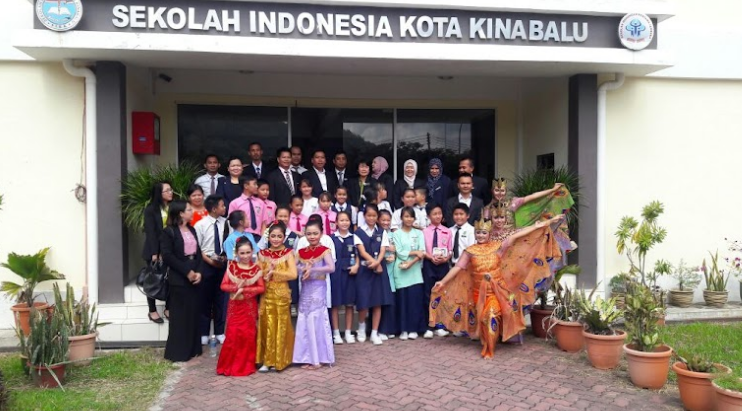Indonesia and Malaysia, two neighboring countries, have long shared a strong relationship and numerous similarities. Both are integral members of the ASEAN community and collaborate extensively on economic, social, and political fronts. Despite their commonalities, each nation possesses a distinct identity and faces unique challenges. This blend of cultural overlap and mutual influence creates a fascinating dynamic for those living across borders.

Indonesian Face Identity Crisis in Malaysia
Fikri, an English Literature student in Universitas Padjadjaran (Unpad) is born and raised in Sabah, Malaysia. He stated the reason why numerous Indonesians live in his city.
“Yes, there are many Indonesians in Sabah. People from Sulawesi migrated there. Most worked as farmers back home and moved to Malaysia seeking better job opportunities,” he shared.
Living in a foreign country can be challenging, and for Fikri, it meant facing an identity crisis. In Malaysia, he was often labeled as an Indonesian, while in Indonesia, people called him Malaysian due to his extended stay in Malaysia. This dual identity often led to confusion and a sense of not fully belonging to either side.
Adding to the complexity, Fikri noted that many Indonesians in Sabah live there illegally, without proper documentation. This lack of legal status contributes to the identity issues and societal challenges faced by the Indonesian community in Malaysia.
Education in Malaysia: Vernacular and Indonesian School
Education is another area where the two countries intersect. In Sabah, the Indonesian Ministry of Education operates schools for Indonesian children, but these schools only go up to junior high school. For higher education, students must return to Indonesia and compete for scholarships through government-administered exams. This was the path Fikri took, moving to Indonesia to continue his education after completing junior high in Malaysia.
“I couldn’t continue my studies in Malaysia, so I moved to Indonesia. Indonesian schools there only go up to junior high school. In the 9th grade, there is a selection process for scholarships to continue studying in Indonesia. Those who do not pass the selection stay in Malaysia either to work or get married.”
Not only are there many Indonesians who live in Malaysia, but Malaysia is also known for being a multiracial and multicultural country. The largest group of Malaysians consists of three main races: Malays, Chinese, and Indians, which is the reason for the existence of vernacular schools. Vernacular schools in Malaysia, known for their instruction in non-national languages such as Mandarin and Tamil, play a crucial role in the country’s diverse educational landscape. These institutions not only offer an alternative form of learning but also serve as custodians of Chinese and Indian cultures within a multicultural society.
“Yes, they (Chinese and Indians) get to choose if they want to go to a normal Malay school or a vernacular school. It’s not discrimination; there’s no prohibition or coercion,” Fikri explained. “Malay people also are fine with it. It’s all about mutual tolerance.”
Author : Vanessa Aurelia Yotania
Editor : M. Aziz Fitratama, Shakila Azzahra M.

